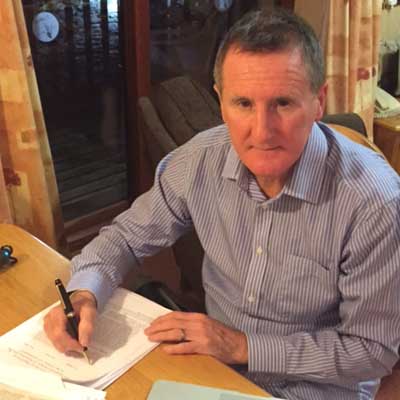 This post was contributed by Frank Watt, a part-time PhD student in Birkbeck’s Department of Organizational Psychology. He retired from his job as an Assistant Chief Officer for Derbyshire Fire and Rescue Service in 2008. Frank is now a consultant specialising in coaching and re-energising stalled projects.
This post was contributed by Frank Watt, a part-time PhD student in Birkbeck’s Department of Organizational Psychology. He retired from his job as an Assistant Chief Officer for Derbyshire Fire and Rescue Service in 2008. Frank is now a consultant specialising in coaching and re-energising stalled projects.
The media coverage of the flooding in the Somerset Levels in late 2013 and early 2014 brought the water, heartache and misery into all of our homes.
Comments about the handling of the emergency had a common theme that appeared to follow a well-beaten path to the Government’s doorstep: “they should have done more.”
More what? More dredging? Expert engineers state that dredging would not have solved the problem and is more of a red herring that flood victims have latched onto. More pumps? Emergency services would ask: “And pump it where?” Excess water was already being pumped into the River Parrot . More funding? And do exactly what with the funding? Probably throw it all on flood defences, and, yes, that’s what they have done. Danny Alexander, chief secretary to the Treasury, recently announced £2.3bn investment in 1,400 flood defence projects. Engineered solutions can help, but are a short-term solution to a longer-term problem.
What about less? Less incentives to cultivate land that holds vast amounts of water in check, less building on land that was originally a marsh and less reliance on agencies and services that are stretched to cope with the on-going emergency.
Whilst the Somerset Levels may be seen as an extreme example of flooding in the UK, it is not uncommon. A flooding timeline over the past 10 years shows extreme flooding in many parts of Britain but not consistently in the same place year on year.
The Met Office weather map comparing the 2013 and 2014 rainfall shows a marked difference in location for the heaviest downpours.
So where does that leave policy makers and planners? The Environment Agency has many large projects, some already underway, to try and deal with the deluge of water produced by constant rain falling on water logged ground and an urban environment that was not designed to cope with the current levels of surface water.
Perhaps part of the solution is localised planning together with mobilising of national resources to carry out some preventative measures. But is it all up to the professionals or can local communities get together to assist the professionals? Better still, can local communities get together and prepare before the flooding has a chance to affect their properties?
A typical scenario might be: it’s been raining all night and the weather forecast predicts a storm is approaching that might last for hours. What are your initial thoughts?
Will you focus on self-preservation or just sit tight and hope everything will turn out all right? You could offer help to someone more vulnerable, or would you feel vulnerable and seek assistance from someone nearby? Perhaps you might check to see if your neighbours need assistance or even phone around to see what everyone else is doing?
I suppose what you believe you might do depends upon many factors such as experience of similar events, the risk of something actually affecting you or your property or having people around you that might get together and do something to reduce the effect of the emergency.
Much of the previous disaster research focuses on response during an emergency or the aftermath, whether that is professional emergency managers or organised groups of volunteers or residents.
Before we can ponder about the effectiveness of residents actively engaged in preparing their community for a weather-related emergency, one might want to ask the question: “Do they want to be engaged”? There appears to be an assumption at national policy level that all communities will engage with local emergency planners to undertake risk-based preparedness measures, but what if they don’t want to be engaged and view preparation for extreme weather to be the responsibility of an agency or government department?
Local emergency planning departments offer a range of support mechanisms from information to assisting in communities getting involved. There are a number of other agencies that provide information and volunteer assistance, such as the National Flood Forum, a registered charity that does some great work with communities and flood victims.
Having been engaged in research on this topic for the past six years I believe it would be useful to know if residents believe that their communities can undertake preparedness activities. Not only that but the very enquiry as to what they believe may spark something in them to find out more and get engaged with protecting their community. If you want to find out more about my research and take part in the survey please visit my web page, www.fwatt.co.uk. Keep dry and be safe!
